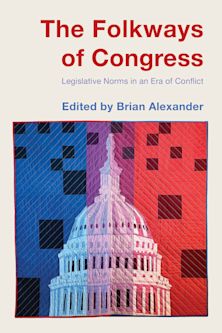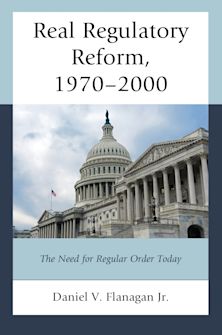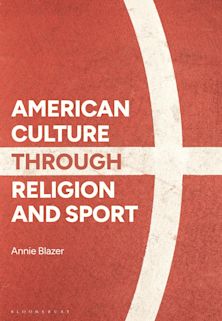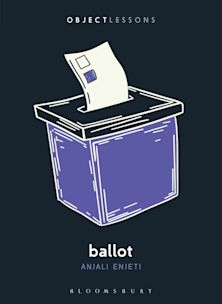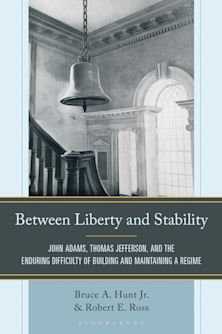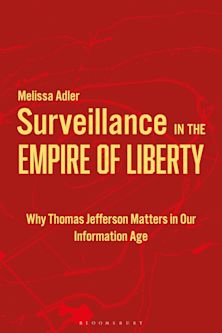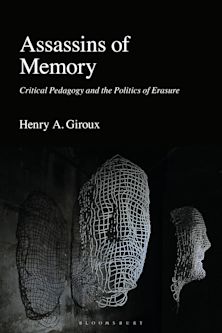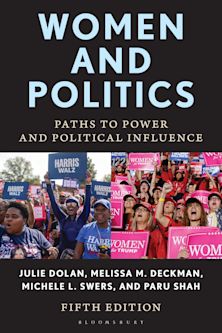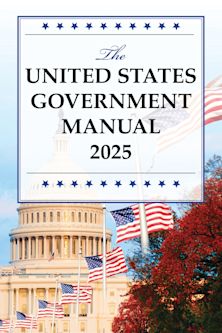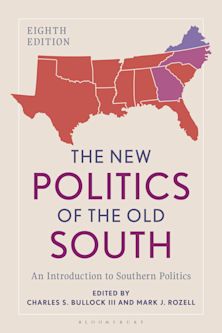- Home
- ACADEMIC
- Politics & International Relations
- American Government and Politics
- Legal Science in the Early Republic
Legal Science in the Early Republic
The Origins of American Legal Thought and Education
Legal Science in the Early Republic
The Origins of American Legal Thought and Education
You must sign in to add this item to your wishlist. Please sign in or create an account
Description
This work examines the intellectual motivations behind the concept of “legal science”—the first coherent American jurisprudential movement after Independence. Drawing mainly upon public, but also private, sources, this book considers the goals of the bar’s professional leaders who were most adamant and deliberate in setting out their visions of legal science. It argues that these legal scientists viewed the realm of law as the means through which they could express their hopes and fears associated with the social and cultural promises and perils of the early republic. Law, perhaps more so than literature or even the natural sciences, provided the surest path to both national stability and international acclaim. While legal science yielded the methodological tools needed to achieve these lofty goals, its naturalistic foundations, more importantly, were at least partly responsible for the grand impulses in the first place. This book first considers the content of legal science and then explores its application by several of the most articulate legal scientists working and writing in the early republic.
Table of Contents
Part I: Legal Science
Chapter 1. Expounding Legal Science: Early Republican Law Lectures
Chapter 2. The Philosophy of Legal Science
Part II: Legal Scientists
Chapter 3. Knickerbocker as Legal Scientist: Gulian C. Verplanck
Chapter 4. English Radical as Legal Scientist: Thomas Cooper
Chapter 5. Southern Scholar as Legal Scientist: Hugh S. Legaré
Chapter 6. New England Justice as Legal Scientist: Joseph Story
Conclusion
Product details
| Published | 31 May 2016 |
|---|---|
| Format | Ebook (Epub & Mobi) |
| Edition | 1st |
| Extent | 226 |
| ISBN | 9781498519472 |
| Imprint | Lexington Books |
| Publisher | Bloomsbury Publishing |
About the contributors
Reviews
-
There was an oft-repeated desire by the first generations of legal elites in the United States that the new nation must take advantage of the opportunity to remake its law into something more orderly, more coherent, and more just, not by scrapping the law as inherited but by improving it. Macias has written an intriguing and finely tuned study of some of their ideas of how to go about doing that.
Journal of the Early Republic
-
For decades the study of American legal history before the Civil War has been dominated by two themes—the economic effect of judicial decisions and the (largely quantitative) study of law and society. In this important book Steven Macias revives a third major theme: the intellectual history of law in the early nineteenth century. Extending themes of Perry Miller, Robert Ferguson, and Michael Hoeflich about law as a science, Macias focuses on four leading legal scientists: Gulian Verplanck, Thomas Cooper, Hugh Legaré, and Joseph Story. He reveals a range of sophisticated ideas about law, from Roman law to commercial law, to jurisprudence held by writers from Massachusetts and New York to South Carolina. Legal Science in the Early Republic recovers the intellectual world of people who saw law as a science and sought to use it to bring rationality and economic and moral progress to the United States. This book expands dramatically the territory of pre-Civil War legal history. These thinkers and their ideas need to be talked about alongside the judges whose opinions pushed economic growth and the humble people whose lives were shaped by criminal prosecutions and civil adjudications. Only now can we see how the entire world of law—from ideas to reality on the ground—fits together.
Alfred L. Brophy, University of North Carolina at Chapel Hill
-
Professor Stephen Macias has written an important and masterful account of the development of legal science in antebellum America. His use of new sources combined with a superb critical analysis make this book a must read for anyone interested in the history of law. The book should be read by every American historian concerned with the antebellum period and should be assigned in every class concerned with the development of the legal system in the United States.
Michael H. Hoeflich, University of Kansas School of Law












